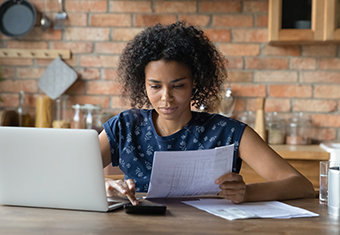One of the first questions you are asked when making a will or considering your inheritance tax liability is: ‘what is the value of your estate?’. Like many people, you may not have considered this before and so may be left wondering what your ‘estate’ actually consists of and how you are supposed to put a value on it.
To find out how much your estate is worth you need to calculate the value of your assets, then minus your liabilities.
Assets in your estate
Your home will almost certainly be your most valuable asset, so start with that. Then add in bank and building society accounts and personal possessions (car/household contents/jewellery, etc). If you are valuing your estate for inheritance tax purposes, use a professional to value any possession worth more than £500. For items worth less than that, HMRC (the UK tax office: HM Revenue and Customs) will accept an estimate.
You should also include:
- Pensions (lump sums payable on death)
- Life insurance policies
- Stocks and shares
- Bonds
- Interest in other properties
- Any money you are owed
Liabilities
Your liabilities consist of anything you owe. These include:
- Mortgages
- Loans
- Credit cards
- Overdraft
- Any kind of debt
Assets – liabilities = estate value
Having worked out the value of your estate you are now able to figure out your inheritance tax liability. For information on this, read ‘How can I prepare for inheritance tax?’
 UK
UK  Canada
Canada




